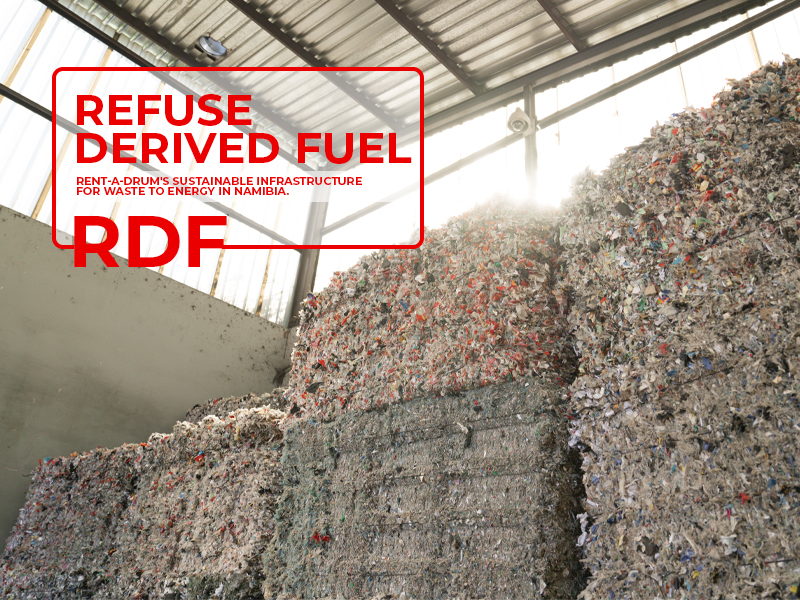

Refuse Derived Fuels: An eco-friendly solution for sustainable energy
Namibia’s first Refuse Derived Fuel Processing plant at Rent-A-Drum was inaugurated on 15 March 2017, marking a milestone in national waste management and ushering in a bold, circular energy future. While some businesses have embraced this evolution, others are still sending valuable waste products straight to landfills.
What is RDF?
Refuse Derived Fuel (RDF) is an alternative fuel made from waste that has been diverted from landfills, helping to reduce the use of high-impact fossil fuels. This ensures that RDF waste is not simply sent to local landfills but is instead put to productive use.
RDF is produced from various types of domestic, commercial and/or industrial waste and by- products with recoverable calorific values. This in turn, can be used as alternative fuels in cement kilns, replacing a portion of conventional fossil.
In certain situations, RDF may require further treatment, for example, shredding, screening, and air classification, to meet specific technical requirements prior to final energy recovery. This is usually the case in a cement kiln. RDF is then burned to eliminate organic pollutants and generate energy.
Why it matters.
RDF typically includes low-value, hard-to-recycle materials like contaminated plastics or paper products. The variety of materials able to be processed and turned into RDF means that this practice poses huge environmental benefits, as less fossil fuels will be required in coal fired power plants or cement plants.
The Circular Economy Advantage:
Namibia’s RDF facility isn’t just a recycling plant, it’s a proof of concept that waste can (and should) power our local industries in Namibia and not pollute our land.
This initiative exemplifies the principles of the circular economy, by turning low carbon energy waste into a value-added resource, powering industry, creating green jobs and sustainability leadership in the country.
Every tonne of RDF burned is a step away from fossil fuel reliance. Join us in supporting recycling efforts and sustainable fuel use, for cleaner industries and healthier communities.
RDF is already here. So, are you leading the change, or letting others define your sustainability legacy?
